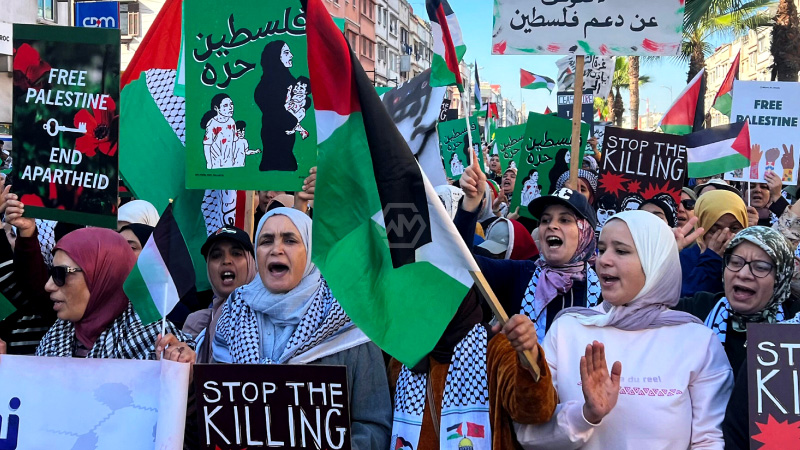- Tens of thousands rallied in Rabat condemning Israel’s military actions in Gaza.
- Protesters targeted U.S. President Donald Trump and their own Moroccan government.
- Demonstrators expressed solidarity with Palestinians, rejecting normalization with Israel.
In a powerful display of solidarity with Palestinians, tens of thousands of Moroccans filled the streets of Rabat on Sunday. They protested Israel’s latest offensive in Gaza.
The protest also reflected dissatisfaction with Morocco’s government. Especially in light of its normalization of relations with Israel under the U.S.-brokered Abraham Accords.
Moroccans Decry Gaza Violence, Slam U.S. and Government Over Normalization
Thousands of Moroccans took to the streets of Rabat in a massive protest against Israel’s military offensive in Gaza. They called for an end to the violence and showed support for Palestinians. The turnout reflected a deepening frustration with both international powers and local authorities.
Protesters criticized former U.S. President Donald Trump for his role in brokering the Abraham Accords, which led to Morocco normalizing ties with Israel. Many banners depicted Trump alongside images of displaced Palestinian families, symbolizing blame toward U.S. policy for the current crisis.
The Moroccan government was also a target of public anger. Demonstrators accused it of betraying the Palestinian cause. Chants called for the reversal of diplomatic ties with Israel. Several protest leaders denounced the lack of meaningful government action in the face of Israeli aggression.
This protest is one of the largest seen in Morocco in recent years. It signals a resurgence of pro-Palestinian activism across the region. It also highlights the growing rift between public sentiment and official government policy concerning the Israeli-Palestinian conflict.
The protest in Rabat revealed deep-rooted opposition among Moroccans to both international and domestic policies perceived to undermine Palestinian rights. It marks a significant moment of unified public outcry.
“Wherever people are being oppressed, the eyes of the world should not be closed.” — Malala Yousafzai



